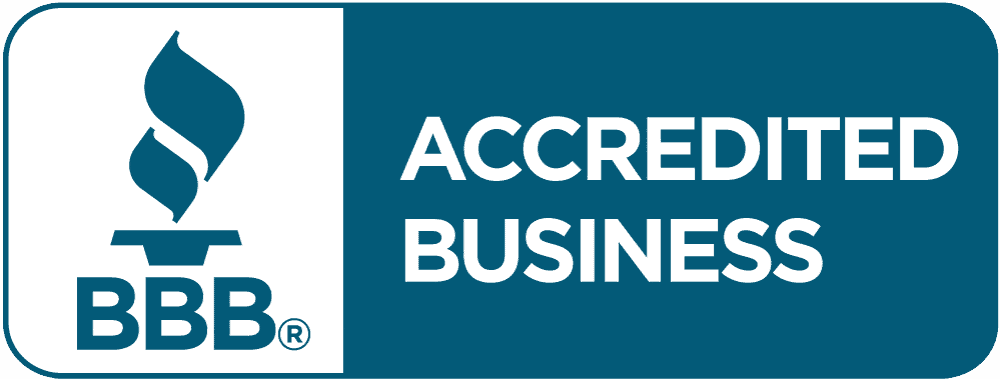
Save Big with Duke Energy Progress and Duke Energy Carolina’s PowerPair Solar and Battery Incentives
Are you considering switching to solar energy? Now is the perfect time, especially if you live in North Carolina. Duke Energy Progress is offering an exciting new program that combines the cost savings of solar power with the reliability of backup battery storage. Introducing PowerPair—a program designed to help you save money while enhancing the security of your home’s energy supply.
Why Choose PowerPair?
PowerPair from Duke Energy Progress offers significant incentives for customers who opt to install both rooftop solar panels and backup battery systems. This program is perfect for homeowners who want to reduce their energy costs while ensuring they have reliable power, even during outages. Here’s how you can save:
Two Ways to Save
When you install a qualifying PowerPair system with the help of a Duke Energy Progress Trade Ally, you may be eligible for generous, one-time installation incentives:
- $0.36 per watt-AC for solar panel installation, up to 10 kW-AC
- $400 per kWh for battery storage installation, up to 13.5 kWh
These incentives make it easier and more affordable than ever to invest in clean, reliable energy for your home.
How to Qualify
To take advantage of these savings, your PowerPair system must be installed by a Duke Energy Progress Trade Ally and enrolled in the Residential Solar Choice Rider AKA Time of Use. Residential solar choice- chrome-extension://efaidnbmnnnibpcajpcglclefindmkaj/https://www.duke-energy.com/-/media/pdfs/for-your-home/rates/electric-nc/ncschedulers-tc.pdf?rev=f88d0837c1174cca92cbfc0a355e2ad8)
Once your system is operational, you’ll need to maintain a reliable internet connection to allow Duke Energy Progress, or an authorized third party, access to the system’s operational data. You must also remain enrolled in the Residential Solar Choice Rider for at least 24 months. After this period, you can switch to the Net Metering Bridge Rider, depending on availability. Throughout the 10-year enrollment, you’re allowed to change rate riders up to two times, giving you flexibility in managing your solar investment.

Maximize Your Savings with EnergyWise® Home Battery
For even greater savings, consider enrolling your PowerPair system in Duke Energy Progress’ EnergyWise® Home Battery program. By doing so, you could be eligible for the following incentives:
- One-time $0.36 per watt-AC incentive for solar panel installation, up to 10 kW-AC
- One-time $400 per kWh incentive for battery storage installation, up to 13.5 kWh
- Monthly bill credits based on your battery capacity after installation
To qualify, you’ll need to enroll in the Net Metering Bridge Rider and participate in the battery control option of the EnergyWise Home program. This program allows Duke Energy Progress, or a third party working on their behalf, to remotely control your system to optimize energy usage and savings. Under this program, Duke has access to discharge your battery to 20% state of charge, up to 36 times per year.
Similar to the standard PowerPair program, you must adhere to Duke Energy Progress’ interconnection requirements and maintain your enrollment in the Net Metering Bridge Rider for 24 months. After this period, you can switch to the Residential Solar Choice Rider, subject to availability.
Ready to Save?
Switching to solar power and backup battery storage with Duke Energy Progress is not only a smart choice for the environment but also a financially savvy decision. With PowerPair, you can enjoy the benefits of clean energy while securing your home’s power supply.

Comparing PowerPair vs PowerPair + Energy Manager Battery Control vs the North Carolina Bridge Rate Structure:
Both are centered on renewable energy programs available to North Carolina residents, but they serve different purposes, target different aspects of renewable energy, and present information in different styles. Here’s a comparison of the two:
- Incentives:
- PowerPair: Offers substantial, upfront financial incentives for solar and battery installation, with potential savings of up to $9,000. However, participation requires enrollment in the Residential Solar Choice Rider. While this rate structure provides less financial return than the Bridge Rate when selling excess solar power back to the grid, it still presents a strong incentive for homeowners. Additionally, this option requires a reliable internet connection and grants Duke access to operational data from your system.
- PowerPair + Power Manager Battery Control: This option provides both a cash rebate and monthly credits based on your battery’s capacity. By choosing Duke’s Power Manager Battery Control, you will be enrolled in the Net Metering Bridge Rider. With this setup, Duke can discharge your battery down to 20% state of charge, up to 36 times per year. A reliable internet connection is required, along with permission for Duke to access and use all operational data from your system.
- Residential Solar Choice Rider: This rate structure offers a wider array of renewable energy options, but the financial incentives are less significant and more indirect. It follows a time-of-use model, where compensation for excess solar power sent back to the grid during daylight hours is reduced, and charges for electricity consumption increase during peak demand periods, which vary throughout the year. In winter, electricity costs are higher in the mornings, while in summer, rates rise during the afternoon and evening. This structure is designed to offset peak demand when electricity usage is highest, placing increased strain on the grid.
- Incentives:
- Net Metering Bridge Rider: The Bridge rate, available through 12/31/2026, is the most financially beneficial option. It operates similarly to traditional net metering, where solar production and electricity consumption are billed at a 1:1 ratio. However, there is no rollover for excess solar production, meaning any unused credits at the end of the month are forfeited without compensation. To maximize return on investment, it’s best to design solar systems that offset 70-80% of annual consumption, avoiding losses during high-production, low-consumption months like spring and fall. While there’s no financial gain from giving Duke excess solar power, offsetting 100% of consumption still offers environmental benefits.
- Flexibility and Commitment:
- PowerPair: Requires a specific commitment to Duke Energy Progress programs for at least 24 months, with some flexibility in managing your energy choices afterward.
- Net Metering Bridge Rider: Offers flexibility in renewable energy types but comes with annual capacity limits for who can be enrolled and certain monthly fees to be on this rider.
- Time Sensitivity:
- PowerPair: Incentives are available now and provide immediate savings.
- Net Metering Bridge Rider: Participation is time-sensitive due to capacity limits and the program closing to new participants after 2027.

Recommendation:
- If you’re focused on solar energy with backup power and immediate financial incentives, the Duke Energy Progress PowerPair program is likely the better choice. The PowerPair program reduces your upfront cost and allows you to keep full control and access of your battery storage system.
- If you’re looking to install solar with battery storage and maximize both upfront and long-term savings, the PowerPair + Power Manager Battery Control offers the best financial return. The trade-off is that Duke will have access to your storage system via a required internet connection and can discharge your battery down to 20% of its capacity up to 36 times per year to help manage peak grid demand.
- If you’re interested in maximizing financial savings and offsetting your carbon footprint, the NC Bridge Rate structure will provide a better overall return on investment and maximum control of the system. Battery backup storage is still eligible and functional on this rider, however no financial incentive is provided.
When deciding between Duke Energy Progress’ PowerPair program and the North Carolina Residential Renewable Energy Program, it’s crucial to align your choice with your specific energy goals and needs. If you prioritize immediate cost savings and reliable backup power, PowerPair offers compelling incentives that make solar and battery installation more affordable. On the other hand, if you’re interested in a better overall return on investment and maintaining full control of your solar system, the residential net metering bridge rider will be the better option for you.
Both programs present valuable opportunities to invest in renewable energy, but your decision should be guided by your energy priorities, financial considerations, and long-term sustainability goals. By carefully weighing the pros and cons of each program, you can make an informed choice that best suits your home and future energy needs.
Check this link on Residential solar choice – Duke Information



